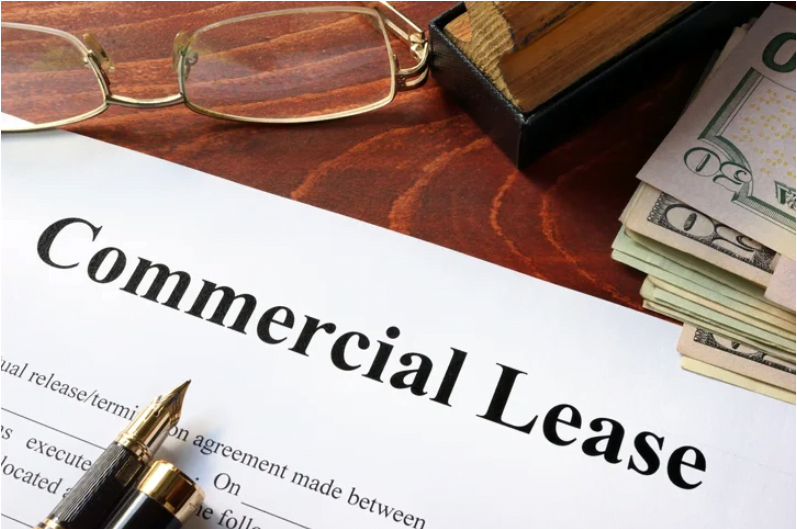As a commercial real estate broker with Commercial Properties, Inc., I frequently encounter prospects, tenants, and even new brokers trying to understand terms like Triple Net. To fully grasp Triple Net, it’s essential to not only understand the definition but also be aware of the costs involved in a basic commercial lease. According to Wikipedia, in commercial real estate, a net lease requires the tenant to pay, in addition to rent, some or all of the property expenses, which are typically covered by the property owner.
Breaking Down Commercial Real Estate Lease Costs
Commercial real estate leases typically involve three key cost areas:
- Base Rent
- Triple Nets
- Electric and Janitorial
What is a Triple Net Lease?
The term Triple Net (or NNN) represents the three major net costs:
- Property taxes
- Property insurance
- Common area maintenance (CAM), which usually includes water
Understanding these components is crucial, as they play a significant role in determining the overall cost of your lease.
Types of Commercial Leases
When entering into a commercial lease, you generally have three main options:
- Triple Net Lease
- Modified Gross Lease
- Full Service Lease
The term Triple Net is commonly used because, regardless of the lease structure, landlords still have to cover these expenses. However, they often pass these costs through to the tenant, with little to no markup for profit.
More on Triple Net Leases
In a Triple Net Lease, the tenant is responsible for all ongoing operating expenses. The landlord, on the other hand, charges an annual base rate, while passing along the costs of the three major nets. Additionally, other costs like utilities, janitorial services, internet, and phone are not included in the lease rent. Essentially, a NNN Lease requires the tenant to manage the space and handle all operating expenses, property taxes, utilities, insurance premiums, maintenance, and interior repairs.
The Three Main Lease Types
- Triple Net Lease (NNN Lease):
A NNN lease requires the tenant to pay a lower base rent, but also to cover additional costs associated with operating and maintaining the space. In fact, the landlord will pass on utility costs that aren’t separately metered, along with all Common Area Maintenance (CAM) charges. CAM costs typically include water/sewer, trash, restrooms, landscaping, parking lots, fire sprinklers, roof repairs, and anything that all tenants share. - Modified Gross / Modified Full Service Lease:
Unlike a Triple Net lease, a modified gross lease includes one, two, or all three Nets as part of the base rent. Therefore, it’s essential to ask your broker which expenses have been included or modified. Typically, a modified gross lease will combine several of the Nets into the base rent, making it easier for tenants to manage their expenses. - Full Service Lease:
In this type of lease, the base rent covers all costs, including taxes, insurance, maintenance, utilities, and janitorial services. The tenant pays a pre-determined lease rate each month without worrying about any additional pass-through expenses for operating costs. As a result, a full service lease is ideal for tenants who prefer simplicity. This option is especially beneficial for medical office tenants, who can focus solely on their business while the landlord handles all the maintenance. Furthermore, monthly rent typically increases by only 3% to 4% per year, although this is negotiable.
Benefits of Triple Net (NNN) Leases
The key benefit of a Triple Net Lease is the potential savings. If expenses such as insurance, taxes, or CAM charges decrease, those savings are passed on to the tenant. However, there’s also a downside. If expenses increase, the tenant will bear the burden of those rising costs.
By understanding the ins and outs of Triple Net and other commercial real estate terms, tenants can make informed decisions that suit their financial and operational needs.
Need assistance with your 1031 Exchange or DST? We’ve got you covered!
We’ve prepared a comprehensive, free e-book designed to guide you in achieving your long-term business goals or acquiring that dream property you’ve been eyeing.
Meet The LeveragedCRE Investment Team
Phill Tomlinson and Eric Butler are seasoned commercial real estate brokers with over 44 years of combined experience. They lead the LeveragedCRE Investment Team at Commercial Properties, Inc. (CPI) in Scottsdale, Arizona, specializing in investment sales and tenant/landlord representation across the Phoenix and Scottsdale submarkets.
The team leverages their extensive knowledge and expertise to help investors and property owners maximize their returns and navigate complex real estate transactions with confidence.
Stay informed with the latest in Commercial Real Estate strategies designed to enhance your income property investment results by bookmarking www.leveragedcre.com. Let us help you stay ahead in the market!


